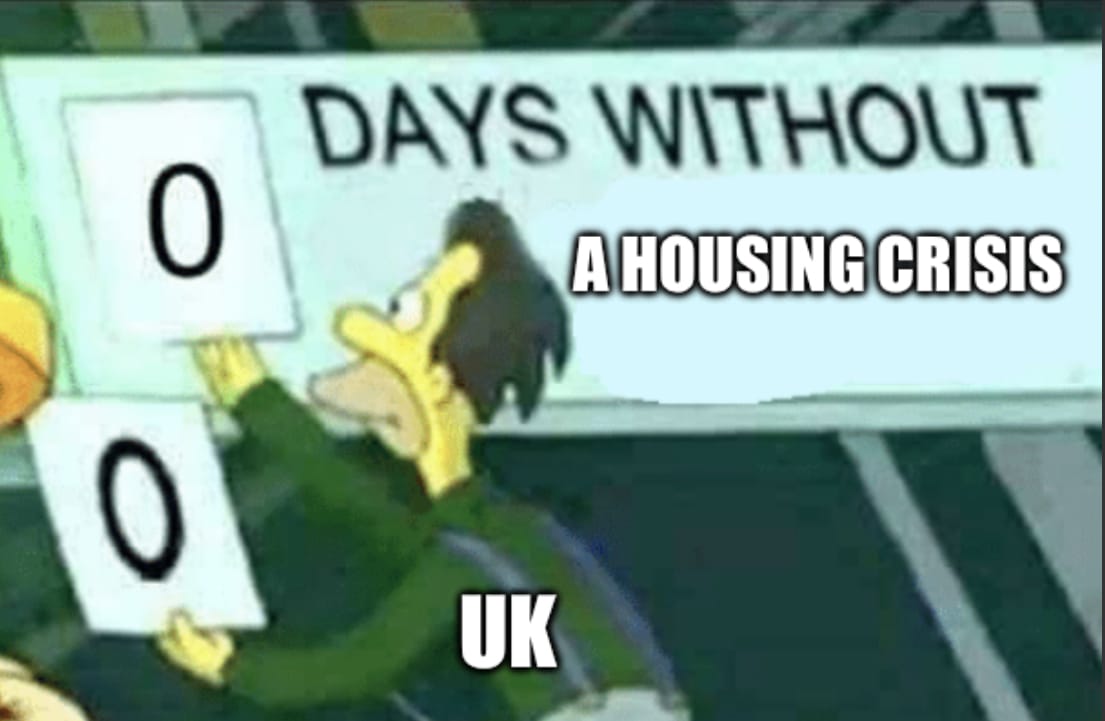Big Housing Problem

I'm Ludo Lugnani and this is Ziplaw: an independent newsletter explaining how news stories impact law firms so you can stand out in applications.
Are you new here? Get free emails to your inbox.
Today's read: 6 minutes
Zipmemo
- 🚀 Space Tensions: The head of a U.S. intelligence committee urged President Joe Biden to spill the beans on a rumoured Russian space weapon, thought to be a satellite-destroying nuke or an electronic-warfare satellite.
- 🇬🇧🇯🇵 Economic Downturn: Britain and Japan are feeling the pinch, both entering technical recessions last quarter. The UK's economy took a 0.3% hit, and Japan's slipped by 0.4%, with Britain battling inflation and Japan losing its economic ranking to Germany.
- 🇮🇩 Indonesia's Election: Prabowo Subianto, a controversial ex-general, is claiming victory in Indonesia's presidential race. Promising to protect Indonesians and lead with the "best," he's yet to be officially declared the winner.
- 💾 Nvidia's Surge: Nvidia just leapfrogged Alphabet, snagging the spot as America's third-biggest company. This comes after eclipsing Amazon, thanks to the AI-driven demand for their cutting-edge semiconductors.
Today's story
The UK is facing a critical housing shortage, with projections indicating a shortfall of nearly 100,000 homes annually, exacerbating the affordability crisis.

What’s going on?
Britain's housing scene is in quite the pickle, and it's not just about bricks and mortar. The gap between homes needed and homes built is widening, with a shortfall predicted to hit almost 100,000 houses yearly. Political promises are flying left and right, with the Conservative Party once aiming for 300,000 new homes a year—a target that's consistently been missed. The Labour Party isn't far behind, pledging 1.5 million homes over five years.
The trouble is, the number of new homes being built isn’t even close to the targets. An average of about 200,000 were completed each year in the UK between 2018 and 2022. But nearly 400,000 a year are needed over the next five years to keep pace with stronger population growth.

Meanwhile, local governments, strapped for cash after years of budget cuts, are struggling to green-light new projects, leading to a significant drop in new private residential constructions. In fact, the number of private housing units granted planning consent in the UK dropped to the lowest in nine years in 2023.
Why does it matter?
Think of housing as the bedrock of economic stability—when that's shaky, everything else trembles. A lack of affordable homes doesn't just mean more people struggling to find a place to live; it signifies a potential drag on economic growth. Here's the kicker: as housing becomes less accessible, consumer spending tightens. People pour more money into sky-high rents or savings for unattainable deposits, leaving less to circulate through the economy.
Moreover, the construction industry, a vital engine of the UK economy, faces its own crisis. Fewer new homes mean less work, leading to job losses and reduced investment in building and infrastructure. This downturn has a domino effect, impacting related sectors from materials to retail.
And let's not forget the long-term view. The housing gap could lead to a talent drain, with skilled workers seeking more affordable living elsewhere, stifling innovation and competitiveness.
How does this impact Law Firms?
Join ZipLaw+ to continue reading
